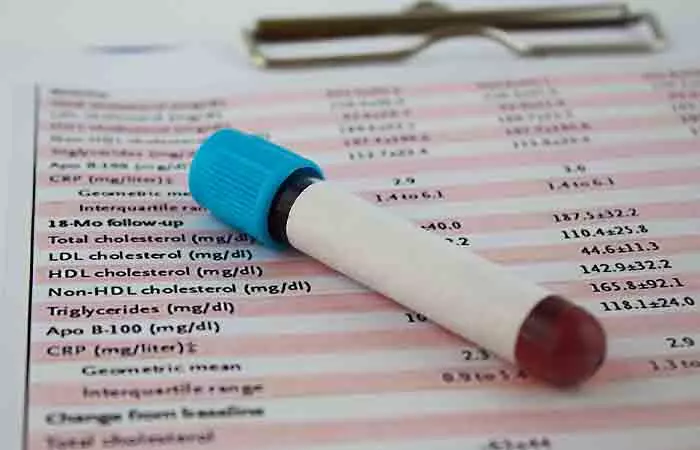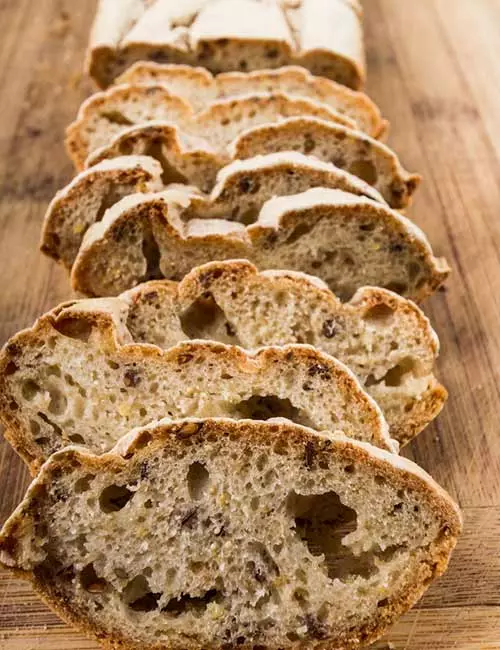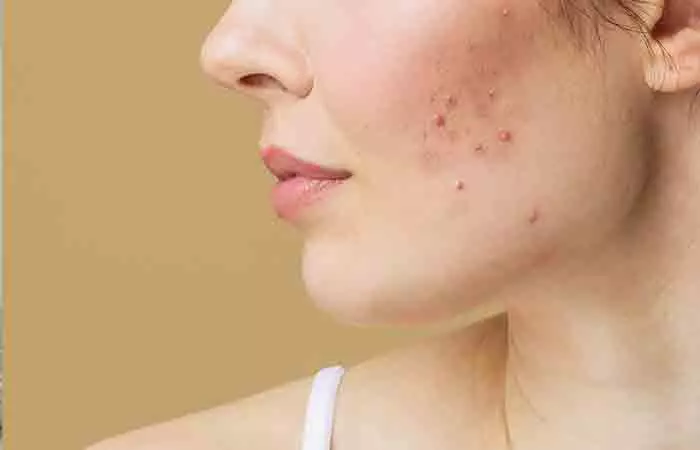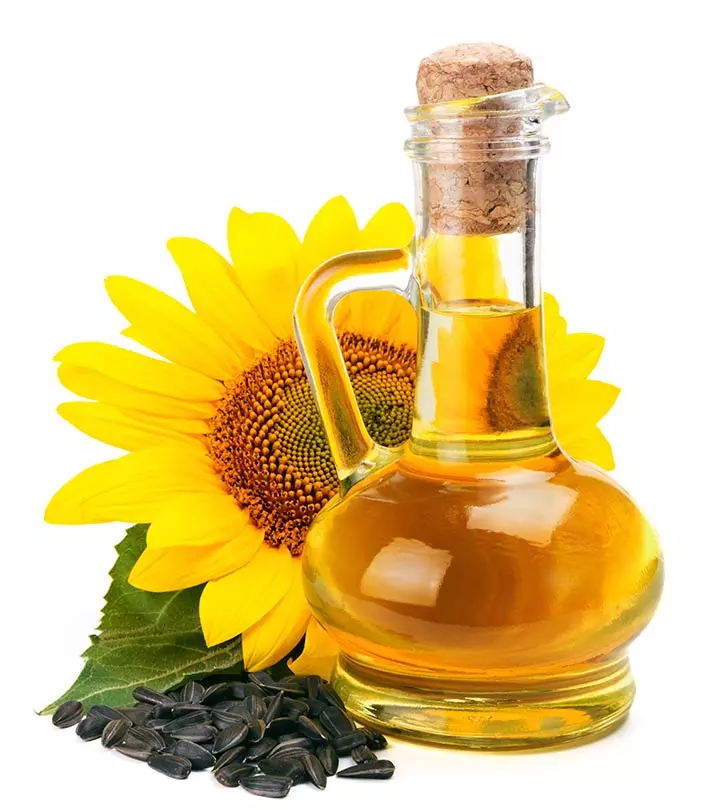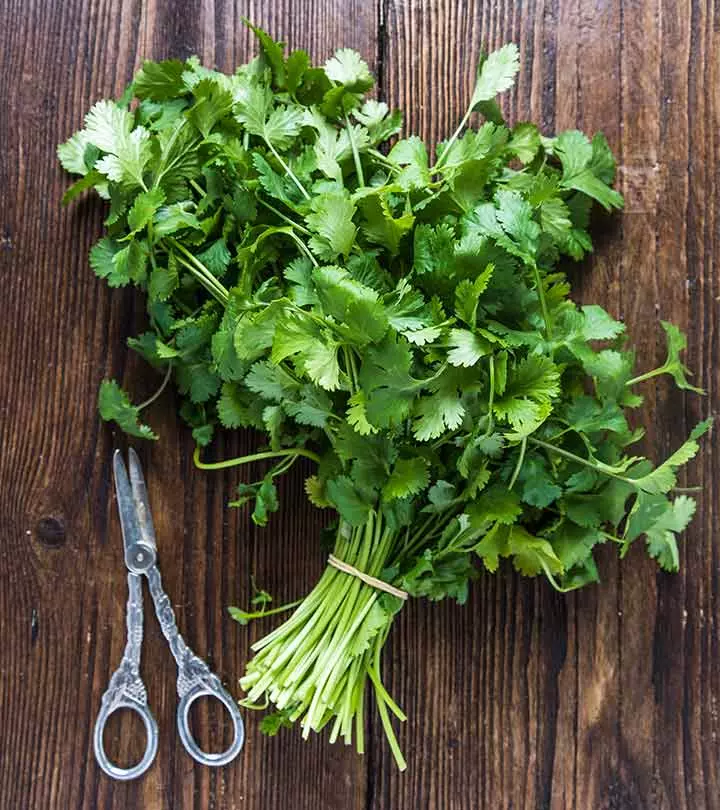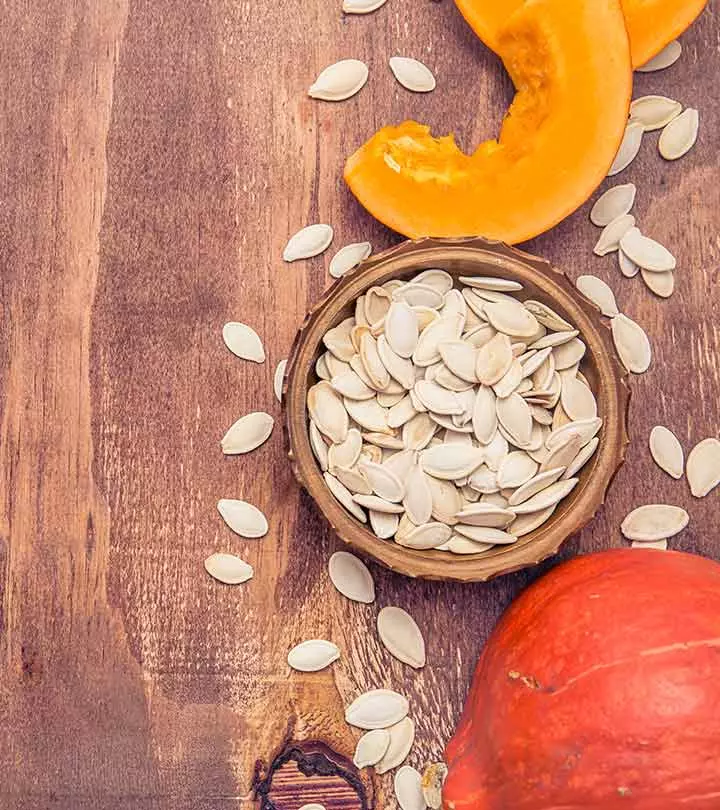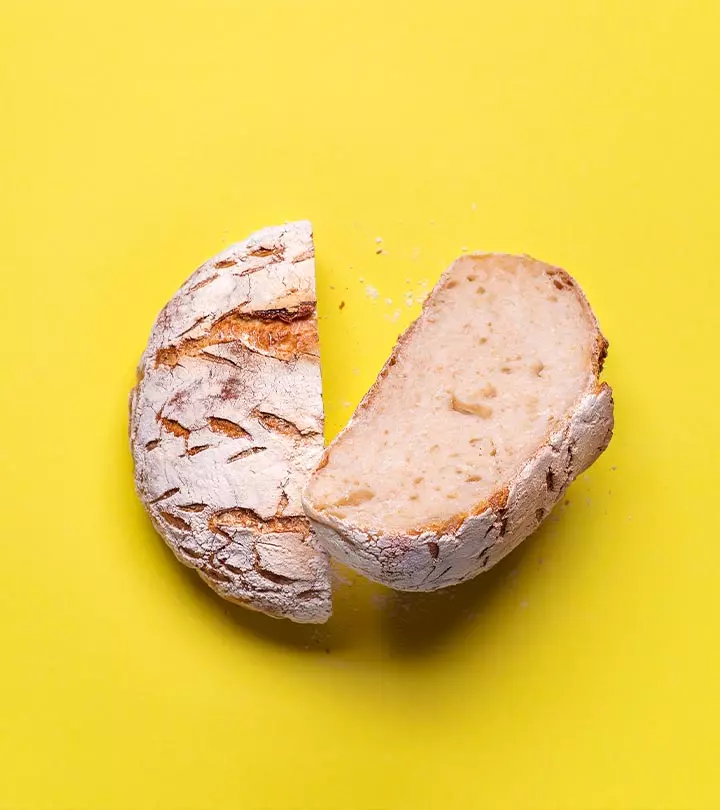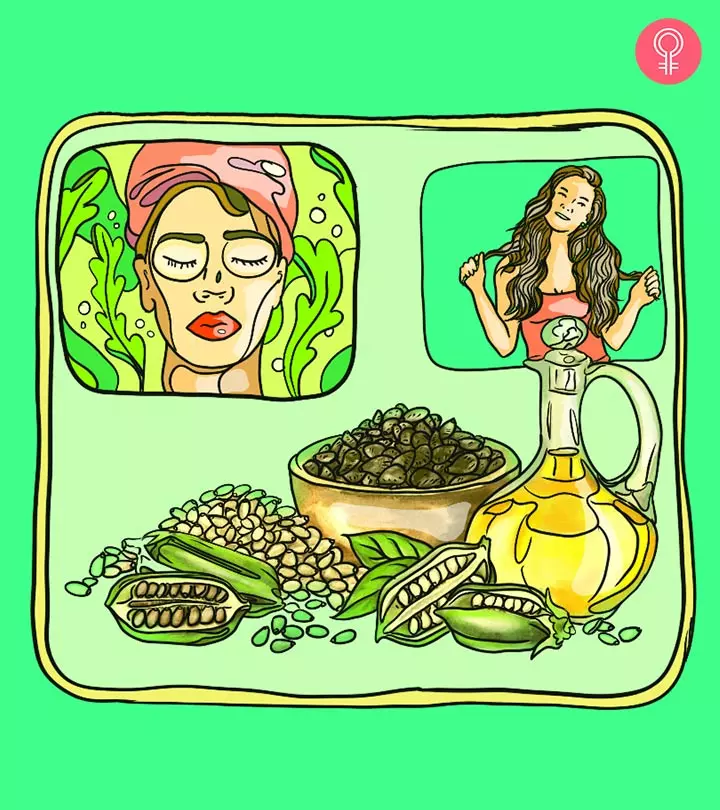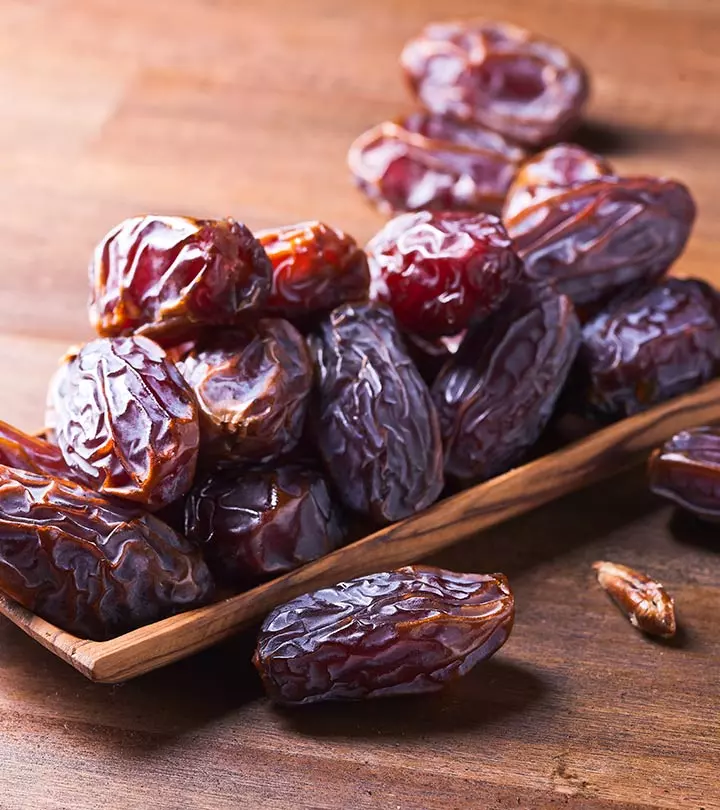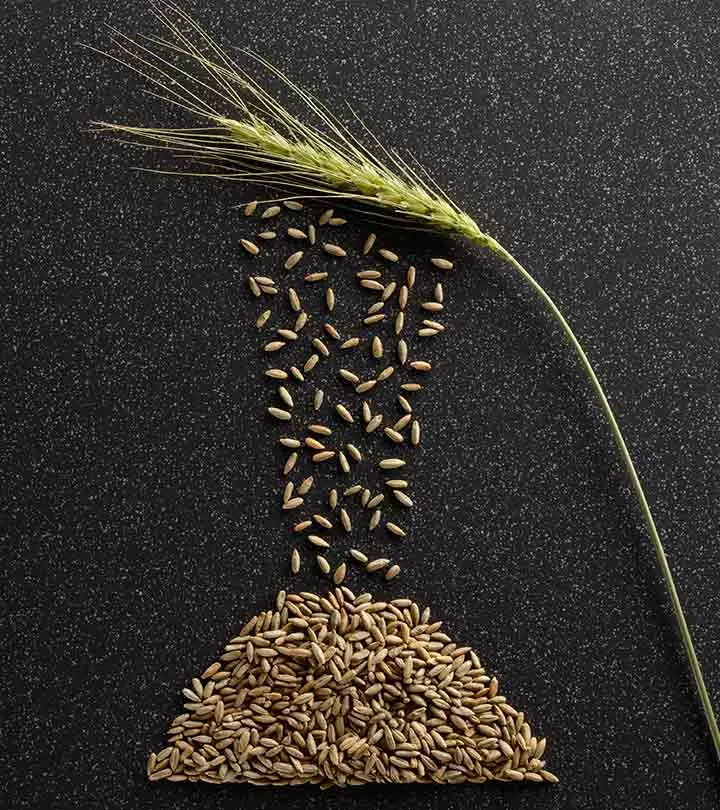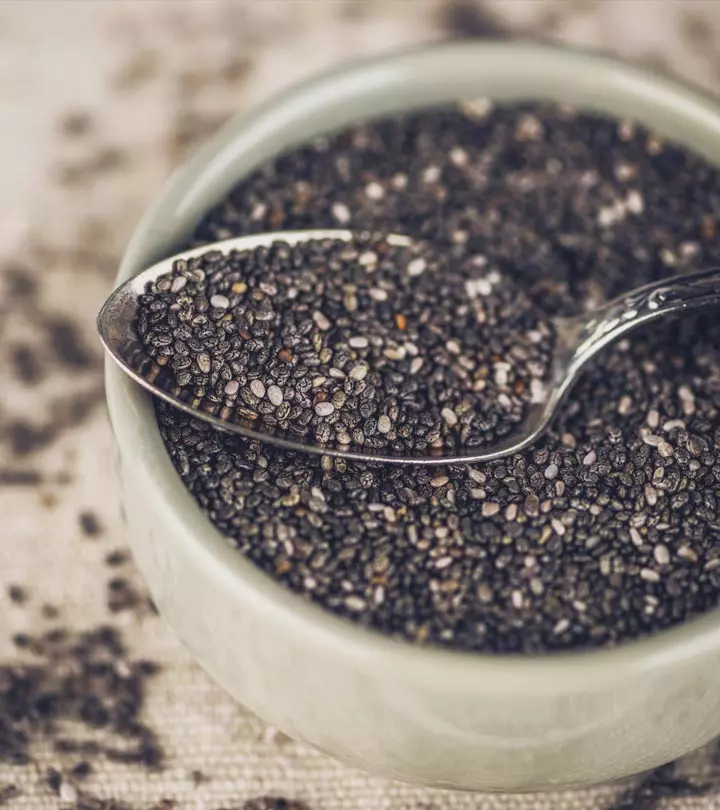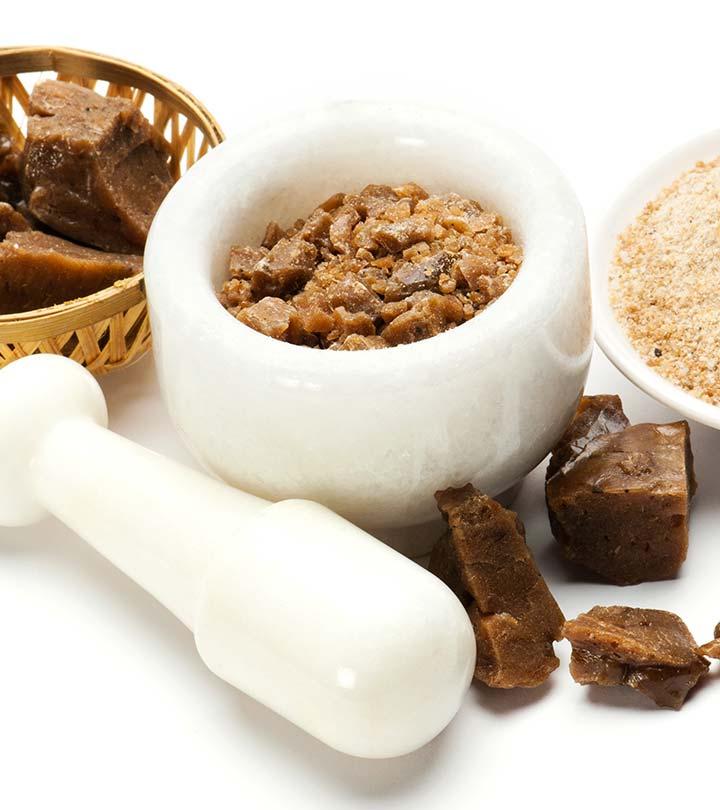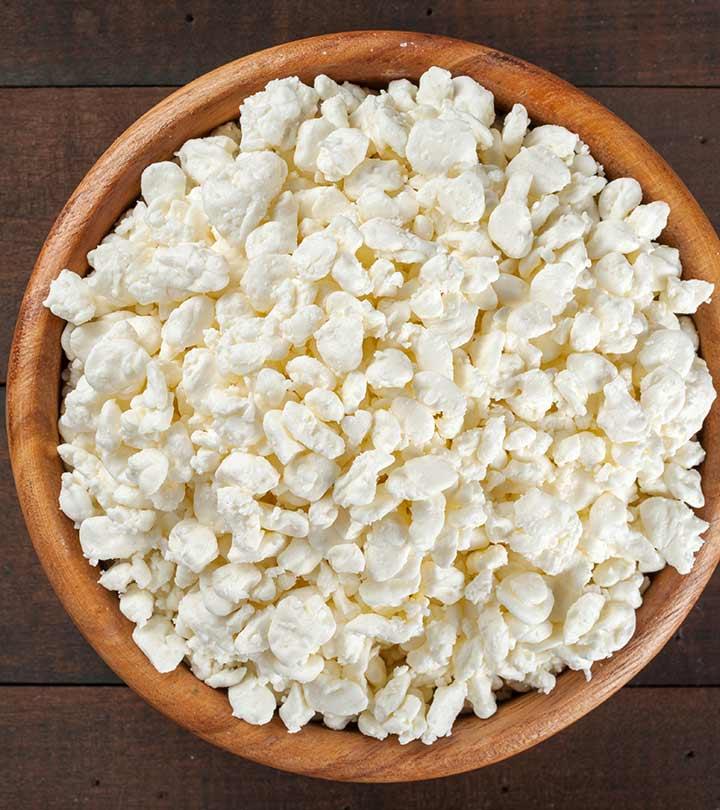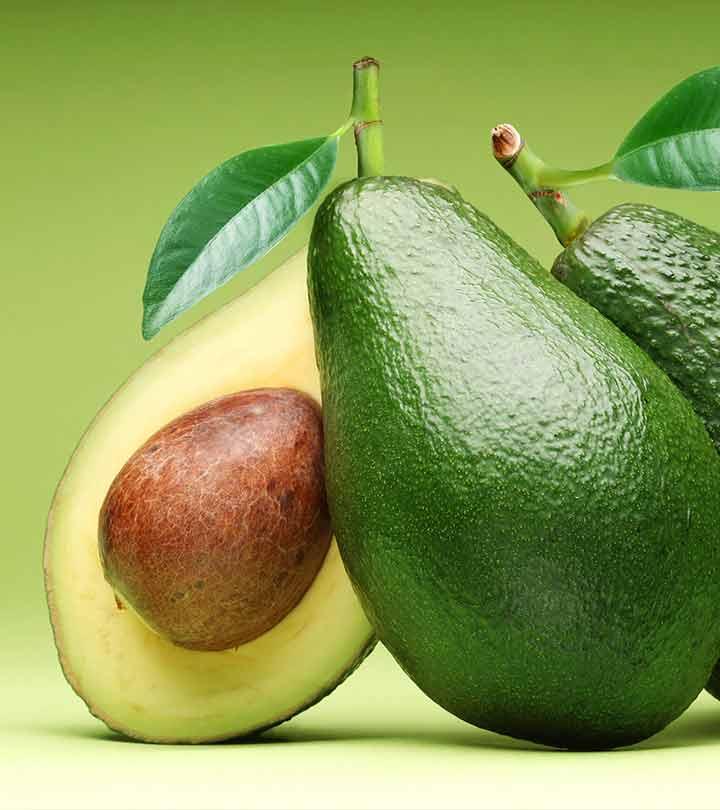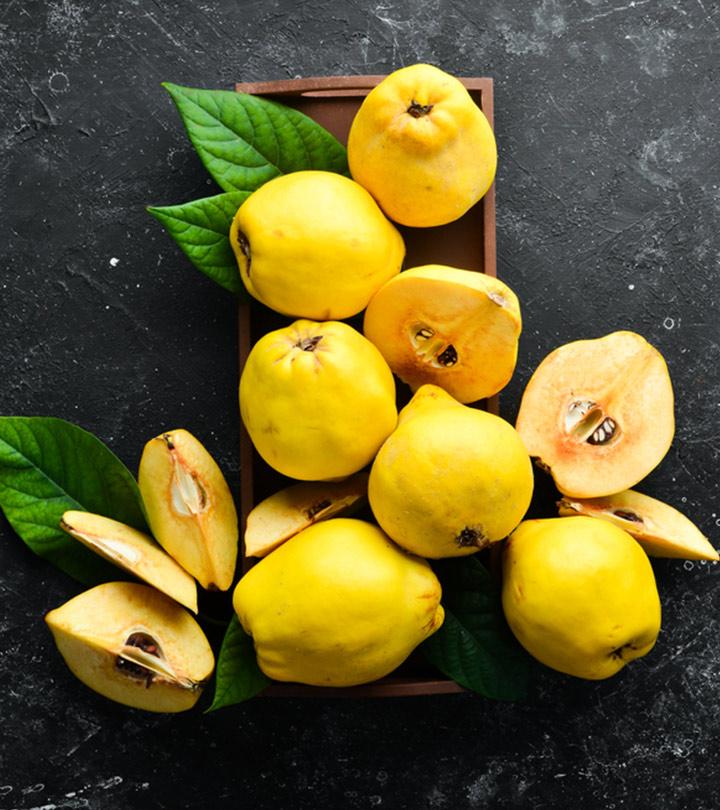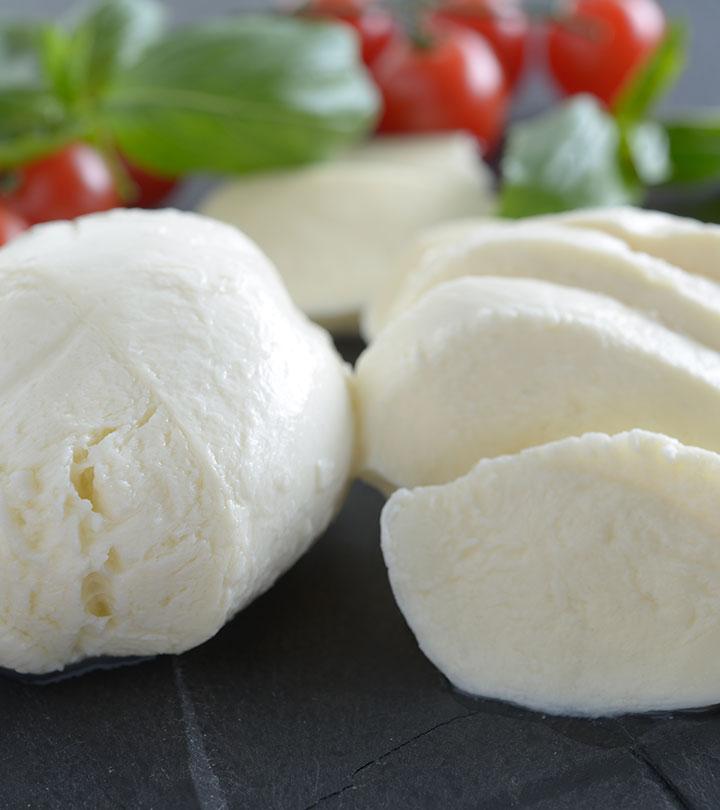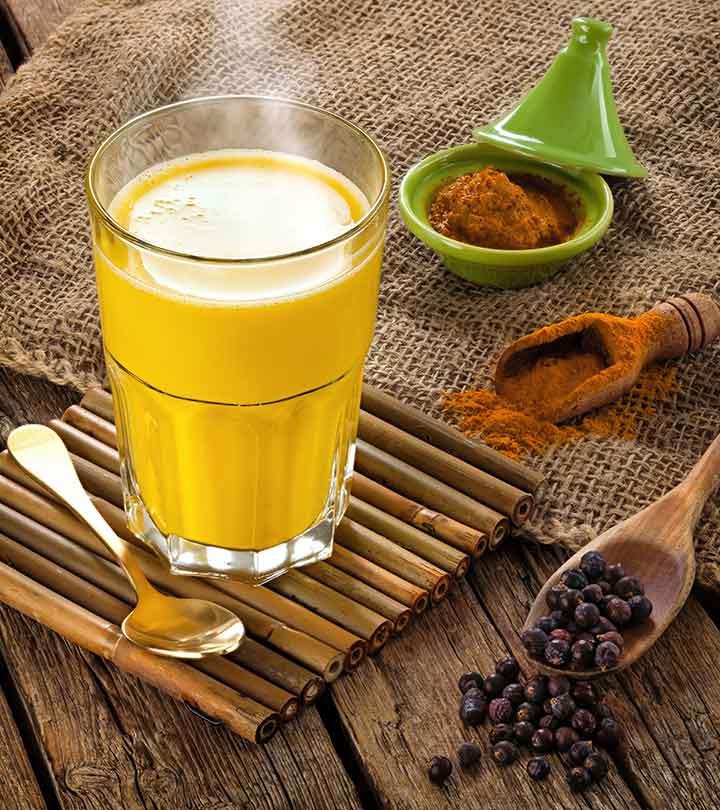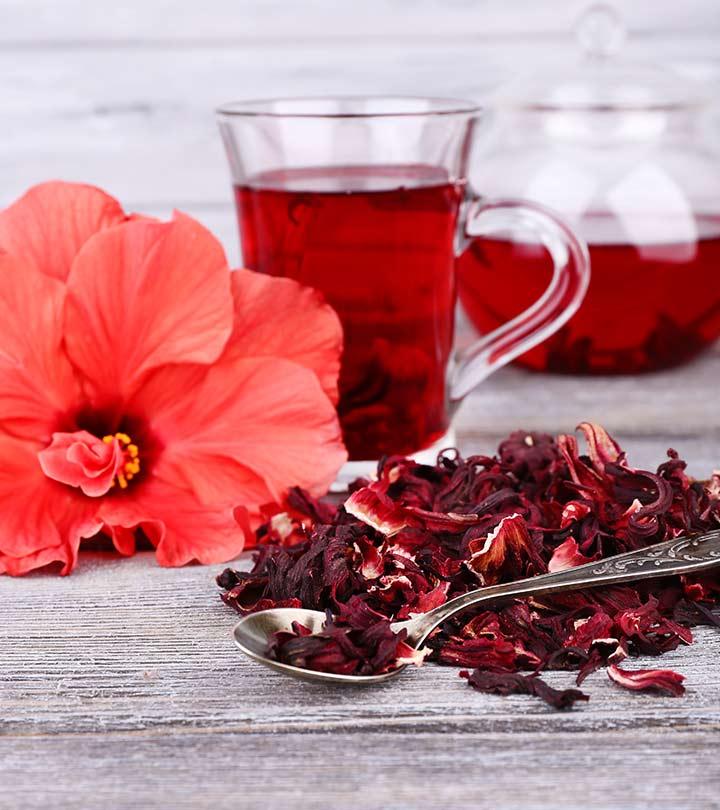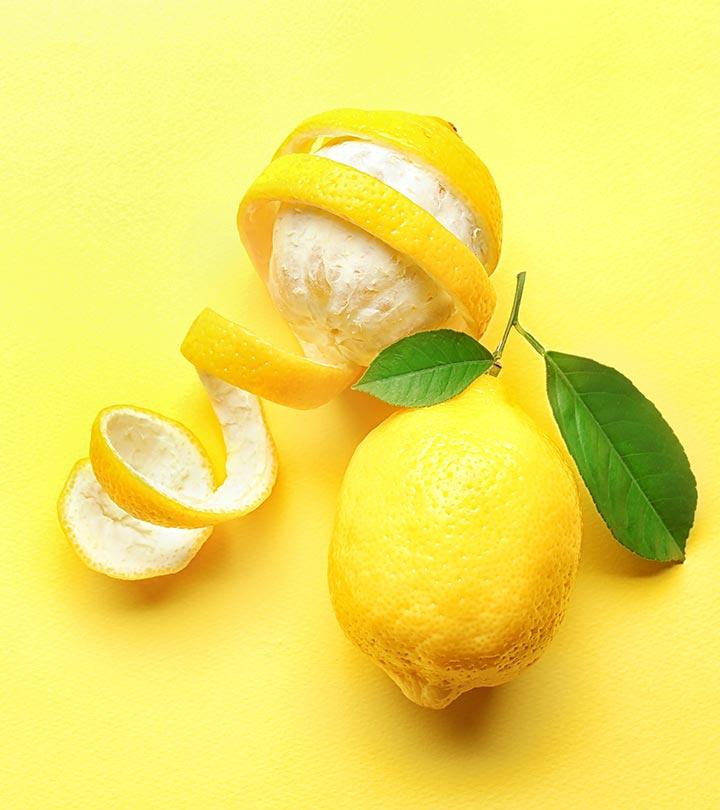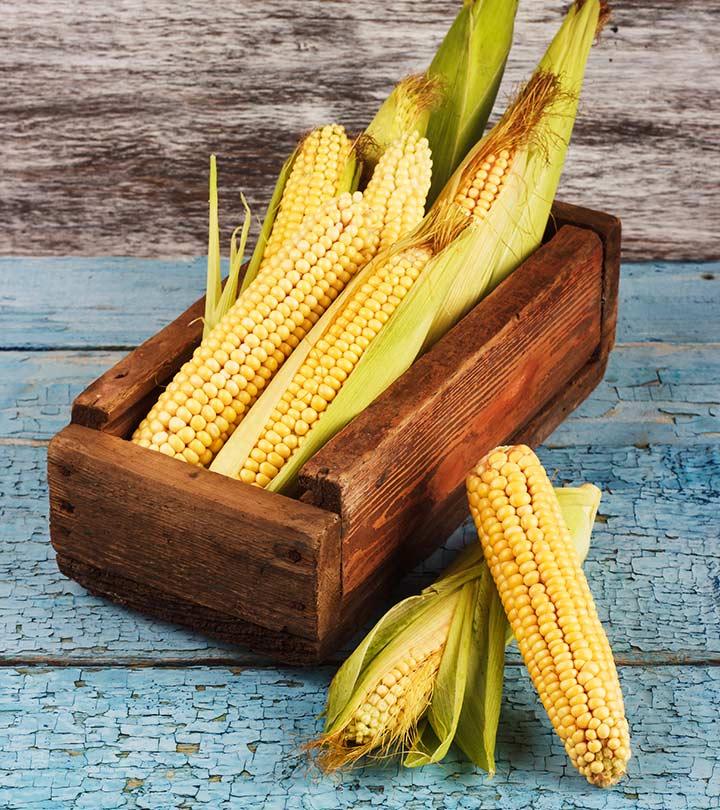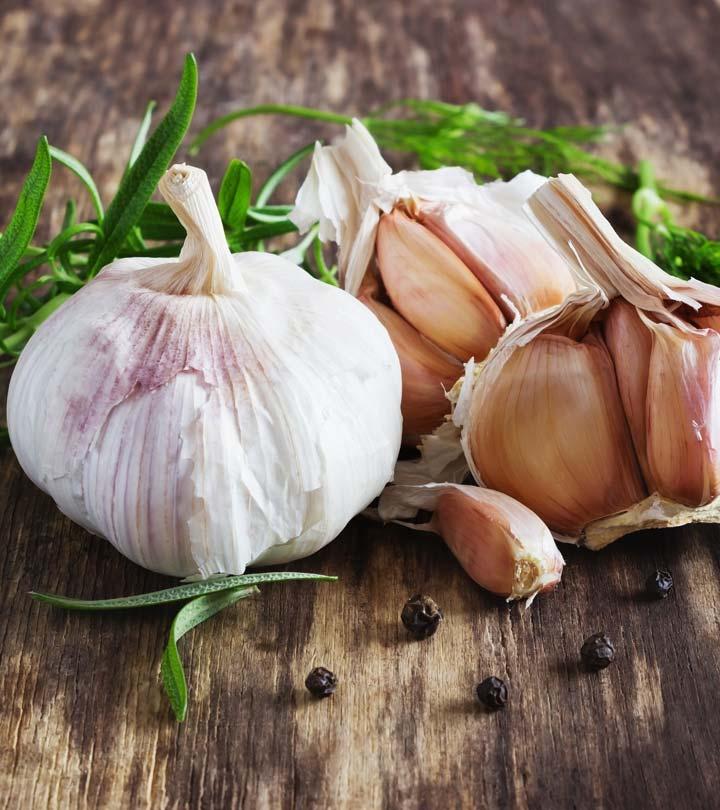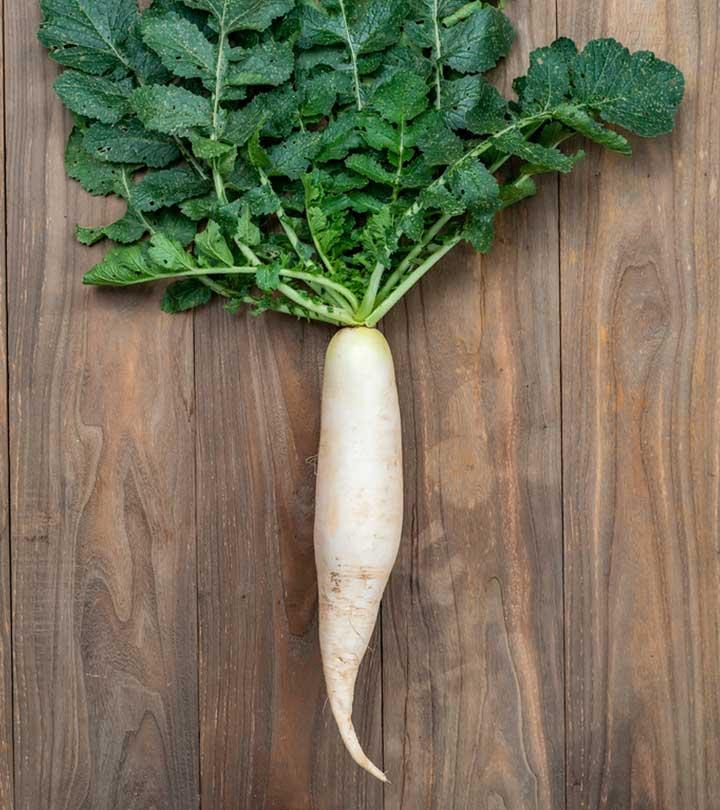8 Benefits Of Sunflower Seeds, Nutrition Profile, & How To Eat
Know why these nutrient-dense seeds are taking place in your healthy diet plan.
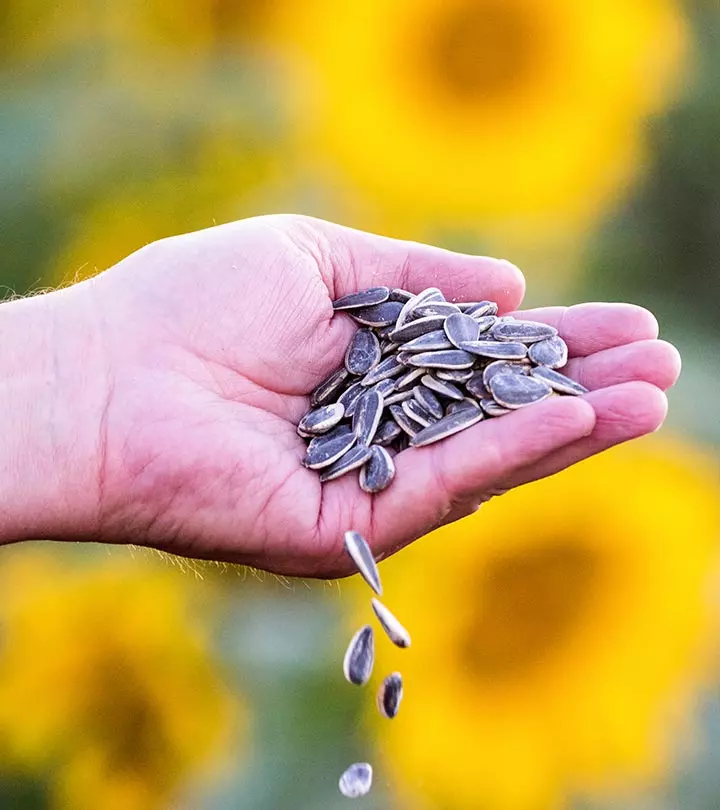
Image: iStock
The benefits of sunflower seeds are making them a healthy snack option. Sunflower, which follows the sun’s movement (also called heliotropism), is aesthetic and offers many health benefits, especially its seeds.
The use of sunflower oil in food has been followed for ages. The seeds are milled to get the oil. But do you know you can directly munch on sunflower seeds as well? Yes. Research has stated that these seeds are rich in vitamin E. The best part is they have zero cholesterol.
Learn more about how sunflower seeds benefit your health here. Read on.
 Know Your Ingredient: Sunflower Seeds
Know Your Ingredient: Sunflower SeedsWhat Is It?
Sunflower seed is the flat, oval-shaped, edible seed of a sunflower with a black and white striped shell.
What Are Its Benefits?
It helps manage cholesterol, inflammatory disorders, and diabetes.
Who Can Use It?
Anyone can consume them except those allergic to sunflower seeds.
How Often?
Three tablespoons can be consumed daily.
Caution
It may cause constipation and diarrhea in children, worsen acne, or trigger allergic reactions in some cases.
In This Article
Sunflower Seeds: What, Why, And Where?
The gorgeous, bright, and summery sunflowers (Helianthus annuus and other species) are the origin of sunflower seeds. They are popular among the avian (birds and air-borne animals) community and are gaining popularity with health freaks too.
The back of the heads of mature sunflowers turn dry and brown, and the yellow petals wither and fall off. This is when the seeds become plump, which is the best time to harvest them (1).
Sunflower seeds are quite versatile. You can eat them raw and whole. The kernels can be eaten raw after hulling the outer shells. You can also roast and have them salted or plain. Hulled, raw, or roasted sunflower seeds are commonly used in baking too (1).
Sunflower seeds are reservoirs of essential fats, protein, magnesium, phosphorus, potassium, zinc, iron, folate, and vitamins A, E, and B (2). That is why they are used in cooking.
The best thing about sunflower seeds? They have no cholesterol! They contain several critical precursors (phytosterols) for the production of hormones in your body (2).
No wonder sunflower seeds are touted to be an ideal keto-friendly snack! Are sunflower seeds good for you? Eating them in fixed amounts can benefit your health in many ways. Check out the next section to find out more.
What Are The Health Benefits Of Sunflower Seeds?
Thanks to their nutritional value, sunflower seeds offer a range of health benefits. They may aid in healthy weight management and maintain hormonal balance in women and men. These seeds can also protect you from cardiovascular diseases and metabolic disorder.
1. Lowers Blood Cholesterol Levels
Sunflower seeds can influence the metabolism and accumulation process as they are rich in mono and polyunsaturated fatty acids.
Saturated fats are found in butter, margarine, lard, and shortening. When you replace saturated fats with unsaturated ones, your cholesterol levels may fall (3).
Sunflower seeds may lower bad cholesterol (LDL) in serum. You also feel a sense of satiety when you eat them. This is because they are high in calories. Eating sunflower seeds can fill you up, so you don’t binge on high-cholesterol foods (3).
Also, a drop in cholesterol levels is good news for your heart!
2. Maintains Cardiovascular Health
Sunflower seeds may help in controlling your blood cholesterol levels. Low cholesterol level means a low risk of atherosclerosisi The thickening of the arteries due to plaque buildup, which limits the flow of blood and oxygen to the essential body parts. and other heart diseases. Sunflower seeds also exhibit anti-hypertensive effects.
These seeds contain specific proteins, vitamin E, and phytochemicals like helianthin that scavenge free radicals in your blood. The proteins found in them (like pepsin and pancreatin) also block angiotensin-I converting enzyme (ACEi Drugs that relax blood vessels and reduce blood pressure by preventing the formation of substances that constrict blood vessels. ). This is a vasoconstrictor, which means it narrows the blood vessels, thus increasing blood pressure (4), (5).
Consuming foods that have ACE-inhibitors can be beneficial in heart conditions like hypertension, ischemic attacksi Strokes due to a blocked or ruptured artery, which causes a sudden lack of blood flow to the brain, resulting in permanent brain damage. , and arrhythmia (5).
3. Exhibits Anti-inflammatory Properties
Sunflower and its oil and seeds are known for their anti-inflammatory effects as they contain active tocopherols (vitamin E), linoleic acid, linolenic acid, triterpenes, and miscellaneous polyphenolic compounds (4).
The flower, seeds, and seed oil may have a positive effect on inflammatory disorders as well. These include diabetes, arthritis, memory loss, gout, and cirrhosisi The scarring of liver from long-term alcohol abuse or viral hepatitis that leads to poor liver function, jaundice, or even cancer. (6), (7).
High sugar levels can trigger inflammation. Fortunately, sunflower seeds have plenty of dietary fiber that slows down the nutrient absorption from food and prevents sugar spikes after a meal (8).
Does that mean sunflower seeds have a low glycemic index (GI)? Let’s find out.
4. Good Snack For Those With Diabetes
Many healthcare providers suggest that diabetes can be controlled by eating the right foods. Eating high sugar, high-carb foods can cause undesirable sugar spikes in your blood. This worsens the condition if you are already dealing with diabetes (9).
Snacking on low cholesterol and low GI foods like sunflower seeds can help you manage your diabetes. Sunflower seeds have a low glycemic index of about 20. Eating them and pumpkin seeds can prevent your blood sugar levels from shooting up (hyperglycemia) (9).
The unsaturated fatty acidsi A healthier type of fat found in nuts, seeds, and vegetable oils that can reduce bad cholesterol levels and inflammation. and polyphenolic compounds in sunflower seeds also have anti-diabetic effects. By controlling your sugar levels, you indirectly protect your liver, pancreas, and other vital organs as well (10).
5. Eases Constipation and Diarrhea
High fiber foods, such as sunflower seeds, pecans, walnuts, pumpkin seeds, and soy nuts among other nuts and seeds can improve digestion by acting like laxatives to help ease constipation (11).
You can eat them by themselves or add them to smoothies, breakfast cereals, or yogurt. But, make sure you take just 20-35 g of these nuts and seeds per day. Too much or too less of fiber in the form of these seeds could worsen constipation or diarrhea.
The anti-inflammatory property of sunflower seeds can relieve irritable bowel syndrome (IBSi A chronic digestive disorder that causes abdominal pain, cramping, bloating, gas, diarrhea or constipation. ). But, be mindful of drinking water along with them. Without water, the seed fiber can do more harm than good (12).
6. Regulates Estrogen Imbalances
Sunflower seeds are one of the richest sources of phytoestrogens. Phytoestrogens are plant-based metabolites. These phytochemicals are structurally and functionally similar to hormones, especially estrogen and testosterone (13).
Studies reveal that phytoestrogens, lignansi Compounds found in fruits, vegetables, grains, nuts, seeds, and legumes that can reduce inflammation and protect against some cancers. , and isoflavonesi Plant nutrients found in soy and flax seeds that act like estrogen and may improve bone health and reduce cancer risk and inflammation. have several beneficial properties that can help prevent breast cancer, prostate cancer, osteoporosis, and various postmenopausal disorders (13), (14).
These plant precursors also bind to estrogen receptors in your body and may positively affect bone health, liver health, heart health, reproduction, and brain function (13).
But, this property of phytoestrogens is highly debated and not a lot of researchers endorse these positive effects.
7. Might Possess Antimicrobial Property
Researchers claim that sunflower seed extract demonstrates antibacterial and antifungal properties.
These seeds can inhibit the growth of certain species of bacteria, like Salmonella typhi, Staphylococcus aureus, Bacillus subtilis, and Vibrio cholera. When it comes to fungi, these seeds might inhibit Aspergillus fumigates, Rhizopus stolonifer, Candida albicans, and Fusarium oxysporum (4).
The tannins, alkaloids, and saponins in sunflower seeds interfere with the cell cycle and protein synthesis, thus killing the bacterial and fungal pathogens (4).
Barring a few hiccups (which we will discuss later), sunflower seeds are a filling, healthy, and tasty snack. These seeds can be eaten by young and old, whether you have diabetes or are battling cancer.
8. May Support Thyroid Function
Sunflower seeds are rich in essential minerals like selenium (4). Selenium exhibits antioxidant effects that help neutralize the free radicals generated during thyroid hormone production (15). A study published in Frontiers in the Endocrinology Journal found that selenium supplementation is associated with a decreased incidence of thyroid disease (16). Selenium helps convert thyroxine (T4), a less active thyroid hormone to triiodothyronine (T3), its more active form (17). This active thyroid hormone is responsible for several essential body processes such as growth, regulation of body temperature, and metabolism. This hormone may also help reduce cholesterol levels and aid in weight loss (18).
What makes these seeds so wholesome and digestive? Their nutritional profile.
They are well-balanced in terms of nutrient distribution. Find out more below!
Nutritional Profile Of Sunflower Seeds
| Nutrient | Unit | 1 cup, with hulls, edible yield 46 g |
|---|---|---|
| Water | g | 2.18 |
| Energy | kcal | 269 |
| Energy | kJ | 1125 |
| Protein | g | 9.56 |
| Total lipid (fat) | g | 23.67 |
| Ash | g | 1.39 |
| Carbohydrate, by difference | g | 9.20 |
| Fiber, total dietary | g | 4.0 |
| Sugars, total | g | 1.21 |
| Sucrose> | g | 1.15 |
| Minerals | ||
| Calcium, Ca | mg | 36 |
| Iron, Fe | mg | 2.42 |
| Magnesium, Mg | mg | 150 |
| Phosphorus, P | mg | 304 |
| Potassium, K | mg | 297 |
| Sodium, Na | mg | 4 |
| Zinc, Zn | mg | 2.30 |
| Copper, Cu | mg | 0.828 |
| Manganese, Mn | mg | 0.897 |
| Selenium, Se | µg | 24.4 |
| Vitamins | ||
| Vitamin C, total ascorbic acid | mg | 0.6 |
| Thiamin | mg | 0.681 |
| Riboflavin | mg | 0.163 |
| Niacin | mg | 3.834 |
| Pantothenic acid | mg | 0.520 |
| Vitamin B-6 | mg | 0.619 |
| Folate, total | µg | 104 |
| Folate, food | µg | 104 |
| Folate, DFE | µg | 104 |
| Choline, total | mg | 25.3 |
| Betaine | mg | 16.3 |
| Vitamin A, RAE | µg | 1 |
| Carotene, beta | µg | 14 |
| Vitamin A, IU | IU | 23 |
| Vitamin E (alpha-tocopherol) | mg | 16.18 |
| Tocopherol, beta | mg | 0.54 |
| Tocopherol, gamma | mg | 0.17 |
| Tocopherol, delta | mg | 0.01 |
| Lipids | ||
| Fatty acids, total saturated | g | 2.049 |
| 14:0 | g | 0.012 |
| 16:0 | g | 1.017 |
| 17:0 | g | 0.009 |
| 18:0 | g | 0.777 |
| 20:0 | g | 0.053 |
| 22:0 | g | 0.147 |
| 24:0 | g | 0.034 |
| Fatty acids, total monounsaturated | g | 8.523 |
| 16:1 undifferentiated | g | 0.009 |
| 17:1 | g | 0.007 |
| 18:1 undifferentiated | g | 8.455 |
| 20:1 | g | 0.039 |
| 22:1 undifferentiated | g | 0.013 |
| Fatty acids, total polyunsaturated | g | 10.643 |
| 18:2 undifferentiated | g | 10.603 |
| 18:3 undifferentiated | g | 0.028 |
| 18:4 | g | 0.006 |
| 20:5 n-3 (EPA) | g | 0.006 |
| Phytosterols | mg | 246 |
Sunflower seeds are composed of 20% protein, 35-42% oil, and 31% unsaturated fatty acids. They have abundant linoleic acid, oleic acid, dietary fiber, magnesium, phosphorus, potassium, calcium, selenium, vitamin A, vitamin E, and folate (4).
These seeds are also rich in active biochemicals. They contain flavonoids like heliannone, quercetin, kaempferol, luteolin, and apigenin, along with phenolic acid and trace elements. (4).
Phenolic acids like caffeic acid, chlorogenic acid, caffeoylquinic acid, gallic acid, protocatechuic, coumaric, ferulic acid, and sinapic acids are also identified in sunflower seeds (4).
Alpha, beta, and gamma tocopherols are present in this plant’s tissues. They also possess alkaloids, tannins, saponins, terpenes, and steroids. This is why sunflower seeds are rich in antioxidants and have potent anti-inflammatory, and antimicrobial effects.
Sunflower seeds also contain tryptophan-rich proteins, which may help guard against depression and improve your mood (19).
 Trivia
TriviaYou can have this power-packed and nutritious snack in a hundred different ways! Here are a few quick ways you can check out.
How To Eat Sunflower Seeds
Sunflower seeds are truly versatile. You can eat them raw, dry roasted, or fried in butter. It is easy to hull them too; however, it can be time consuming.
Annie, a blogger, delves into the slow process of shelling sunflower seeds. She remarks, “This has to be the epitome of slow living – in fact too slow for me unless I can come up with a better process (i).” Harvesting seeds from her summer sunflowers poses challenges, such as concerns about pests to a dislike for the texture post-extraction. Despite experimenting with soaking and roasting, Annie seeks a more efficient method for extracting the kernels.
Hulled raw sunflower seeds can be used in muffins, cookies, bread, and homemade granola and sprinkled on salads and cereal.
How To Hull Sunflower Seeds
- To hull dried sunflower seeds, break them up with a rolling pin, hammer, or food chopper.
- Drop the seeds and hulls into a large colander of water and stir vigorously.
- The kernels will sink to the bottom, and the shells will float at the top, making them easy to separate.
- Sun-dry the kernels before roasting or storing them.
I tried making a loaf of gluten-free bread with sunflower seeds. And guess what?
It turned out to be DELICIOUS!
Here’s the recipe.
Mixed-Seed Gluten-Free Bread Loaf
What You Need
- Gluten-free flour (a blend of rice, potato, and tapioca flours, and xanthan gum): ~ 450 g (1 lb)
- Salt: 1 teaspoon
- Caster sugar: 2 tablespoons
- Yeast (fast-action): 2 teaspoons
- Full-fat milk: 310 ml (10 fl oz)
- Cider vinegar: 1 teaspoon
- Vegetable oil: 6 tablespoons (plus extra for greasing the tray)
- Eggs: 3
- Mixed seeds (such as sunflower, pumpkin, and sesame seeds): 4-5 tablespoons
Let’s Make It!
- Grease and line a loaf tin (about 900 g/2 lb capacity). Set it aside.
- Pour the flour into a food mixer or processor with the balloon whisk attachment.
- Add the salt, sugar, and yeast one after the other.
- In a jug, whisk the milk, vinegar, oil, and two eggs together.
- Pour the egg mix into the mixing bowl.
- Add 4 tablespoons of mixed seeds.
- Switch on the mixer and whisk the ingredients for about 3-4 minutes.
- Transfer the batter to the greased tin.
- Cover the tin with cling film (preferably oiled) and leave it to ferment for about an hour or until doubled in size.
- Meanwhile, preheat the oven to 180°C or 350°F or Gas 4.
- Bake for about 35-45 minutes. Cover the tin with foil after the first 10 minutes.
- About 10 minutes before the end of the cooking time, beat another egg in a bowl. Brush the loaf with this egg wash and sprinkle the seeds on top of the loaf. (You can skip the egg wash step and only sprinkle seeds if you don’t like the raw eggy flavor.)
- Remove the tray from the oven and leave it to cool on a wire rack.
- Slice the loaf into thin pieces
- Enjoy it with fresh cranberry jam dip or aged cheese on the side.
The next question that might occur to you is, “Will something go wrong because I ate too many sunflower seeds?”
Read the next section to find out the side effects of binging on sunflower seeds.
What Are The Side Effects/Risks Of Sunflower Seeds?
- May Cause Severe Constipation And Diarrhea
There have been cases of severe constipation and diarrhea in children who reportedly consumed unshelled sunflower seeds. Eating unshelled sunflower seeds can cause impaction (a condition in which the stool gets stuck and hardened in the rectum), causing a bezoari Indigestible material found in mammals' digestive tracts, often composed of hair, plant matter, and other undigested substances. (20).
Hence, it is risky for both adults and children to eat unshelled sunflower seeds (20).
- May Cause Allergic Reactions
There are also chances of developing an allergic reaction to sunflower seeds. The sunflower pollen and proteins are known to be potent allergens.
One might develop a skin condition, rashes, swollen tongue and larynx, allergic rhinitis, asthma, bronchitis, conjunctivitis, and/or edema after eating sunflower seeds (21).
If you notice any of these symptoms after eating sunflower seeds, consult a doctor at the earliest.
- May Worsen Acne
One of the classic side effects of sunflower seeds or oil is worsened acne.
If you already have acne vulgaris, sunflower seeds can aggravate it because these seeds have high-fat content and trigger comedogenic sebum. Such high-lipid sebum can clog the skin pores and worsen acne (22).
On the contrary, the topical application of products with sunflower seed oil or extracts works well as these products show anti-inflammatory effects and heal skin conditions (22).
Further research is needed to determine whether sunflower seeds are helpful or not.
So, what’s the right thing to do? Should you eat or not eat sunflower seeds? Decide after you read the next section!
What’s The ‘Right Way’ To Eat Sunflower Seeds?
Here’s what you need to keep in mind when eating sunflower seeds:
- According to a health claim for nuts established by the US Food and Drug Administration (FDA) in 2003, eating 1.5 ounces (42 grams) per day of most nuts may be able to reduce the risk of heart disease. That means, three tablespoons of sunflower seeds each should do the magic!
- You should balance the consumption of sunflower seeds with other seeds and nuts like cashews, peanuts, walnuts, flax seeds, pumpkin seeds, sesame seeds, and almonds.
- Raw sunflower seeds have about 4.4 g of saturated fats (per 100g). Therefore, eating a lot of them might be harmful to your health.
In any case, you should consult a doctor or a nutritionist to determine the right portion size and alternatives for you.
Ever Wondered
How Sunflower Seeds Are Harvested?
This is an interesting procedure!
- Cut off the entire flower head when you are ready to harvest the seeds.
- Place it in a net bag or tie a piece of cheesecloth around it.
- Hang the covered flower upside-down.
- The flower head should be hung in a warm, dry place with good air circulation for about 3 weeks.
- The seeds will drop out as they dry.
- Get the rest of the seeds out of the head by knocking it against a table or counter or by rubbing two heads together gently.
- Clean the seeds thoroughly before putting them in airtight containers for storage.
If you are motivated to try these seeds, you can buy a bag of these and snack on them.You can also buy unshelled ones and use them as and when needed.
 Quick Tip
Quick TipWe have also got some tips to store them safely. Check them out!
How To Store Sunflower Seeds
The best way to store sunflower seeds is in an airtight container or bag in the pantry or any cool, dark place with a constant temperature.
Putting them in the fridge prolongs their shelf life or longevity, but make sure to store them in a glass or ceramic container as these seeds easily absorb harmful chemicals from plastic.
And how do you know if they’ve gone bad?
Just smell them!
Usually, sunflower seeds have a good, long shelf life. But when they start smelling rancid, it’s time to throw them out.
The fatty acids in them get oxidized by the oxygen in the air. Eating them at this point can be harmful to your health. So, check the stored containers every once a while.
Infographic: More About Sunflower Seeds
The benefits of sunflower seeds are many, making them a delightful addition to your diet. These crunchy, mild, and nutritious seeds are loved by many. You may enjoy them as a snack, in salads, or as toppings.
From the infographic below, you can learn more about sunflower seeds, their varieties, their global appeal, and their popular alternatives. Illustration: StyleCraze Design Team
Sunflower seeds are rich in healthy fats and are highly nutritious snack options. They are high in polyphenols but low in cholesterol. The benefits of sunflower seeds can be attributed to their rich nutritional profile. You can add them to your diet in many ways. Intake of sunflower seeds may lower blood cholesterol levels, maintain cardiovascular health, regulate blood sugar levels, and ease constipation and diarrhea. Some of sunflower seeds benefits for females include the prevention of osteoporosis, breast cancer, and various menopausal disorders. Add them to your favorite salads, baked foods, or smoothies. However, excess intake of sunflower seeds may worsen acne and cause allergic reactions. In addition, the consumption of unshelled seeds is risky for both children and adults. Hence, limit their intake and consult your doctor in any emergencies.
Frequently Asked Questions
How many sunflower seeds can I eat in a day?
Intake of 1 ounce (30 grams) of sunflower seeds per day is considered healthy (23).
Are sunflower seeds a superfood?
Sunflower seeds are rich in health-promoting nutrients and are generally considered a superfood.
What happens if you eat sunflower seeds every day?
Sunflower seeds offer many health benefits if consumed in moderation. These seeds are high in nutrition and may help treat many ailments.
Key Takeaways
- They can help shield your skin against free radicals damage and maintain skin health and elasticity as they contain vitamin E.
- The high zinc levels in sunflower seeds also boost hair health and reduce hair loss.
- They can also lessen inflammation and promote heart health as they are rich in healthy fats.
- Sunflower seeds can further help regulate your metabolism and improve the immune system.
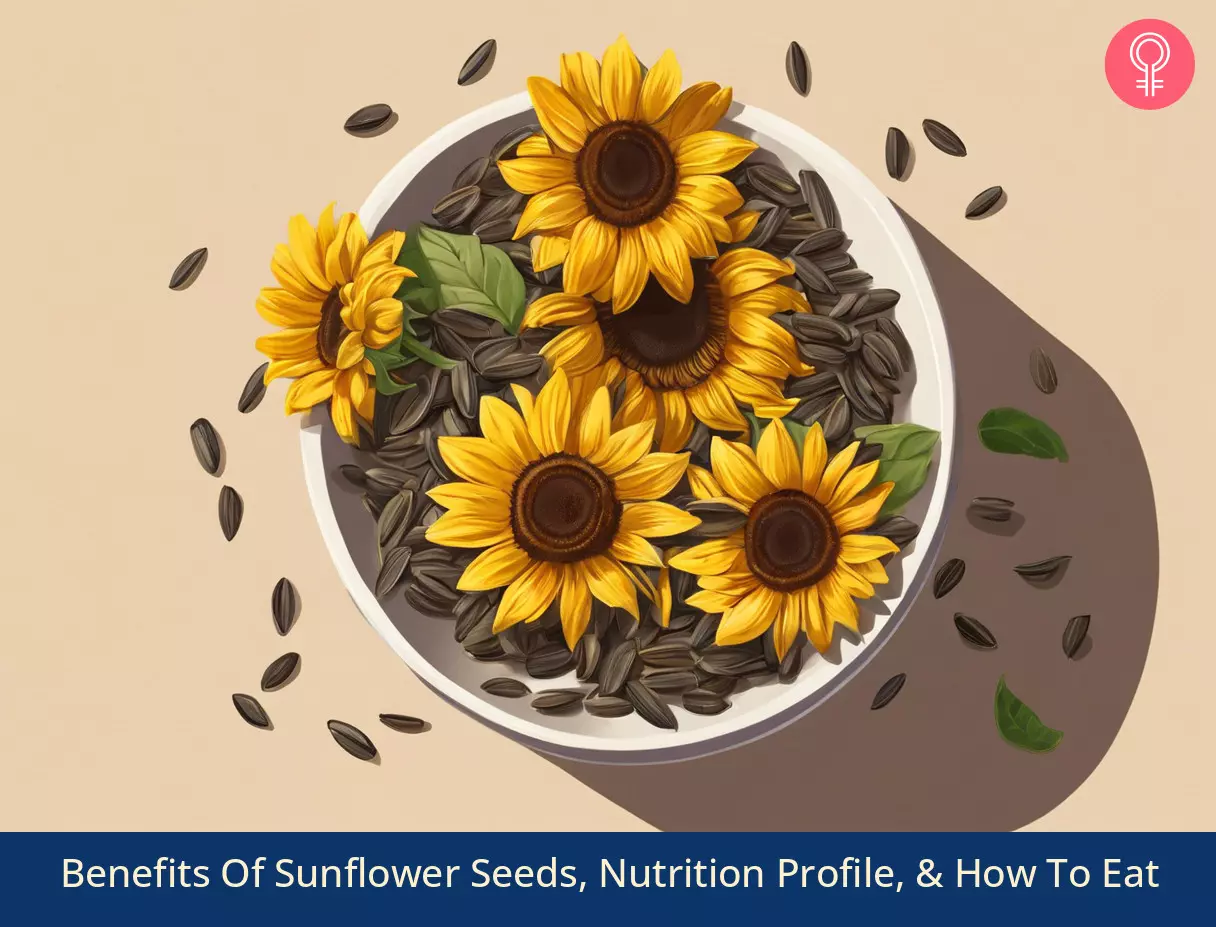
Image: Stable Diffusion/StyleCraze Design Team
Sunflower seeds are a great source of nutrition. Learn about the seven health benefits they offer in this informative video.
Personal Experience: Source
StyleCraze's articles are interwoven with authentic personal narratives that provide depth and resonance to our content. Below are the sources of the personal accounts referenced in this article.
i. Sunflower seed quandaryhttps://artygreeninparadise.blogspot.com/2013/05/sunflower-seed-quandary.html?m=0
References
Articles on StyleCraze are backed by verified information from peer-reviewed and academic research papers, reputed organizations, research institutions, and medical associations to ensure accuracy and relevance. Read our editorial policy to learn more.
- “Sunflower seeds are for the birds – and people” MSU Extension, Michigan State University.
- “Full Report (All Nutrients): 12036…” National Nutrient Database for Standard Reference Legacy Release, United States Department of Agriculture, Agricultural Research Service.
- “Monounsaturated and Polyunsaturated Fat” US FDA.
- “A review of phytochemistry, metabolite changes, and…” Chemistry Central Journal, US National Library of Medicine.
- “Why nutritionists are crazy about nuts” Harvard Women’s Health Watch, Harvard Health Publishing, Harvard Medical School.
- “Fighting Inflammation with Food” The Whole U, University of Washington.
- “Anti-Gouty Arthritis and Antihyperuricemia Effects…” BioMed Research International, US National Library of Medicine.
- “Fight inflammation with food” Harvard Health Letter, Harvard Health Publishing, Harvard Medical School.
- “The importance of snacking when you have diabetes” MSU Extension, Michigan State University.
- “Pumpkin and Sunflower Seeds Attenuate Hyperglycemia and…” Research Journal of Pharmaceutical, Biological and Chemical Sciences, Academia.
- “Sunflower (Helianthus annuus L.) Seed in Health…”ResearchGate, Elsevier
- “The low-FODMAP diet for irritable bowel syndrome…” National Library of Medicine, Elsevier
- “Lignans” Micronutrient Information Center, Linus Pauling Institute, Oregon State University.
- “The association between dietary lignans, phytoestrogen…” Nutrition and cancer, US National Library of Medicine.
- “Selenium and Thyroid Disease…” US National Library of Medicine.
- “Selenium and thyroid..” US National Library of Medicine.
- “Selenium: An Element…” US National Library of Medicine.
- “Thyroid Hormone Regulation…” US National Library of Medicine.
- “The Antidepressant Effect of..” US National Library of Medicine.
- “Severe obstipation due to..” US National Library of Medicine.
- “Sunflower seed…” US National Library of Medicine.
- “Sunflower Seed..” US National Library of Medicine.
- “Markers of cardiovascular risk…” US National Library of Medicine.
Read full bio of Sarah Spann
Read full bio of Ravi Teja Tadimalla
Read full bio of Payal Karnik





